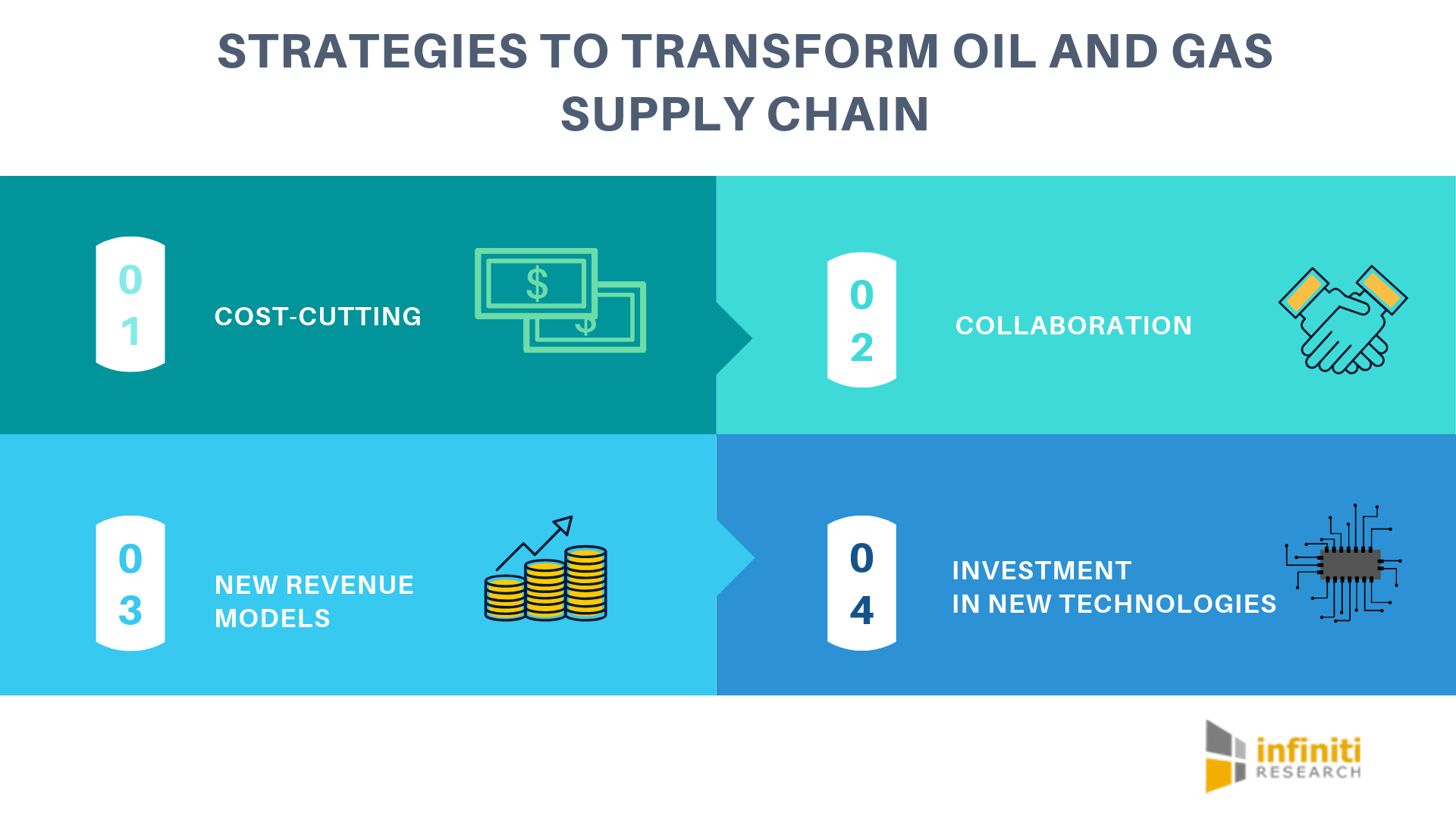The growth of oil and gas supply chain companies has been showing a trend of steady decline over the past couple of years. As the supply chain spending by operators has been cut back due to crumbling crude prices, the Oil Field Services and Equipment companies (OFSE) have been losing business. The companies in the oil and gas industry have cut down costs and, in some cases, made changes to their business models to cope up. Here are some strategies that experts at Infiniti envision will change the current state of the oil and gas industry companies and adapt to the changing environment.

Commodity-price fundamentals are challenging in the short term, requiring executive teams to constantly reevaluate mid-to-long-term expectations. As a result, companies in the oil and gas industry are confronting significant strategic challenges and complex decisions. Request a free proposal to know more about our solutions and how we can help oil and gas companies formulate sustainable business strategies.
Cost-cutting
The oil and gas industry is one such sector that has grown exponentially due to soaring prices over the years. However, the current oil and gas industry landscape and the need to cut down prices have come as a big blow for oil and gas companies. The industry has been faced with multiple years of cost inflation, this rising expenditure per barrel, and high break-even levels. Operators are now rediscovering the spirit of efficiency to overcome these challenging times. For instance, independent operators in the US onshore raised production per well while lowering cost per barrel by using improved horizontal drilling techniques, and longer wells with more frac stages, along with super fracking, where drillers pump a lot more sand into their wells. Tactical initiatives such as project postponements, expenditure cuts, and staff reductions were given prime importance, and OFSE firms responded by cutting back on their own service and manufacturing footprint to cope with less activity, lowering their costs for solutions delivered.
Collaboration
Collaboration could prove to be an effective strategy to lower costs and simplify contractor management in the oil and gas industry. Many services and equipment purchases currently are outsourced to several different providers. This often results in complexity and a fragmented supplier base. Multiple OFSE companies are now bringing these services in-house, with integrated offerings reducing coordination costs. This can result in significant cost savings. While some oil and gas companies are developing integrated offers in-house, many also are partnering or merging with others to provide a wider range of services.
In the past 17 years, we have undertaken 500+ projects across all major regions and industry sectors, helping clients plan and execute the strategies required to sustain and grow. Get in touch with our experts for more insights on our market intelligence solutions and how it can help your organization.

New revenue models
New revenue models have emerged in the oil and gas sector. This includes performance-based contracts that combine equipment and services and participation in project financing. This allows oil and gas companies to give operators more flexibility by reducing their cost base and need for investment during challenging times. Although this results in more capital expenses for OFSE providers, it also can create a more stable income flow.
Investment in new technologies
Investments in modern technologies are helping oil and gas companies to capture new growth and attain sustainability. Today’s low oil prices have created a need for efficiency, which highlights new technologies that can drive efficiencies albeit at a limited investment cost. Many OFSEs now are redesigning equipment using modular designs to drive out inefficiencies and attain maximum cost reduction.
Our solutions can help oil and gas companies to manage uncertainty and improve performance through analysis, insights, and benchmarking. Learn more about our solutions.


